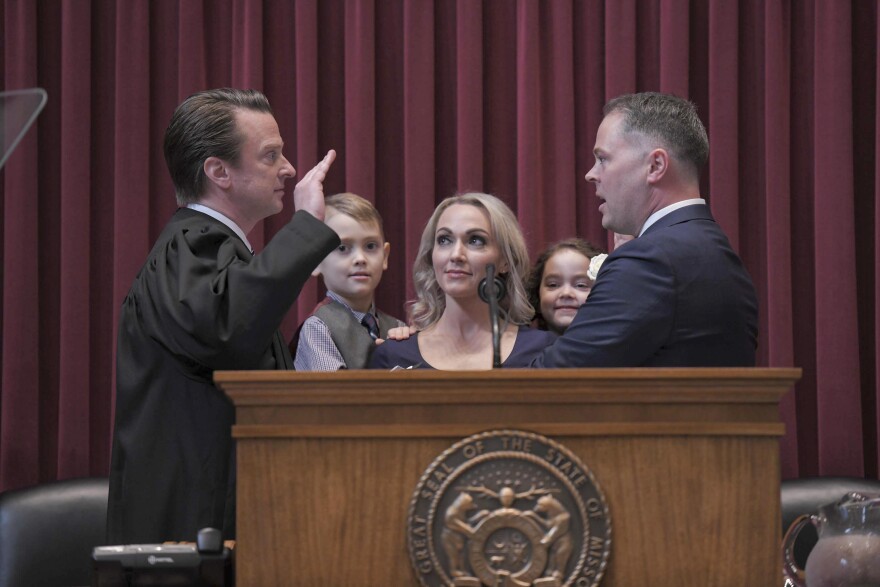Missouri House Speaker Elijah Haahr is the latest guest on Politically Speaking, where he talked with St. Louis Public Radio’s Jason Rosenbaum about what to expect during the 2019 legislative session.
The Springfield Republican was elected as House speaker on Wednesday. Republicans will have a chance to accomplish a lot since the GOP holds commanding supermajorities in both of the General Assembly’s legislative chambers.
An attorney, Haahr was first elected to his post in 2012 to represent part of Springfield in the Missouri House. He quickly rose up the ranks, eventually being selected to chair the House Emerging Issues Committee and being elected as House speaker pro tem.
As is custom, Missouri Republicans elect their speaker-designee the year before an election — as a way to get a potentially divisive leadership fight out of the way. Haahr ended up defeating Reps. Holly Rehder, R-Sikeston, and Robert Cornejo, R-St. Charles County, to succeed Todd Richardson.
Haahr used his speech after he was sworn in as speaker to emphasize a business-friendly agenda, which included paring down regulations around lawsuits. He also emphasized a need to fix a “broken criminal-justice system,” which could include changing sentencing guidelines.
Other issues that the Legislature may tackle include whether to tax out-of-state online purchases — and whether to try to alter or completely repeal a new state legislative redistricting system.
Here’s what Haahr had to say during the show:
- Haahr said other states, like Texas, have had success in rehabilitating people and saving money by overhauling how sentences are given out. “You know just in the last couple of years, Texas has done huge sentencing reforms,” he said. “And they’re starting to see the economic impact. Humanity aside, they’re seeing a big-dollar impact.”
- He said he wants to involve Democrats in the legislative process when it comes to the criminal-justice overhaul, adding that he expects the two parties will clash on a multitude of issues.
- Haahr said his caucus is not inclined to try and substantially change a minimum-wage hike, which voters approved in November. That would raise the state’s minimum wage to $12 an hour by 2023.
- He said there is bipartisan interest in potentially putting a change or repeal of Missouri’s new redistricting system up for a statewide vote. Haahr said he wants to work with African-American Democrats who feel the new process could lower the percentage of black residents living in minority-majority districts. Proponents of the new system believe there’s protections in the amendment, known as Clean Missouri, against diminishing minority representation.
Follow Jason Rosenbaum on Twitter: @jrosenbaum
Follow Elijah Haahr on Twitter: @elijahhaahr
Music: “Time to Dance” by Panic! At the Disco


